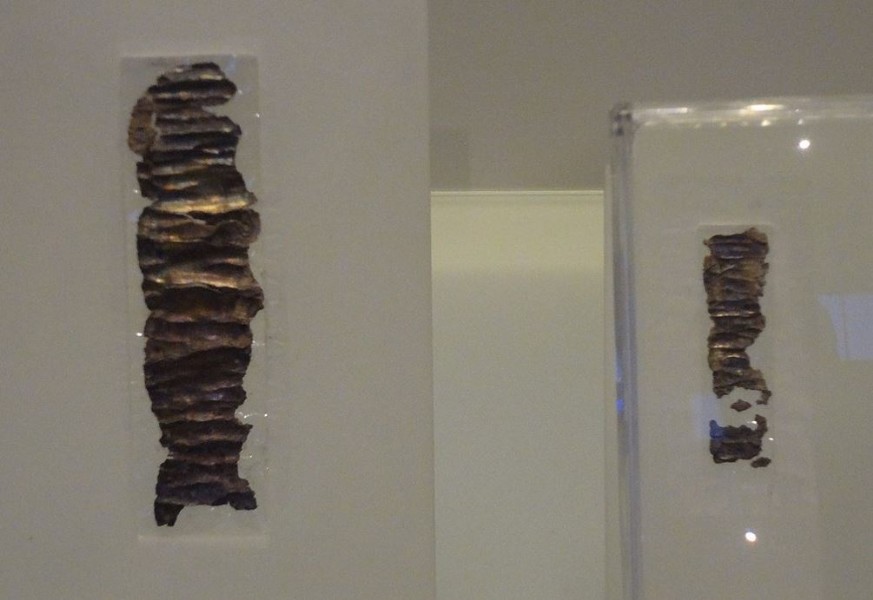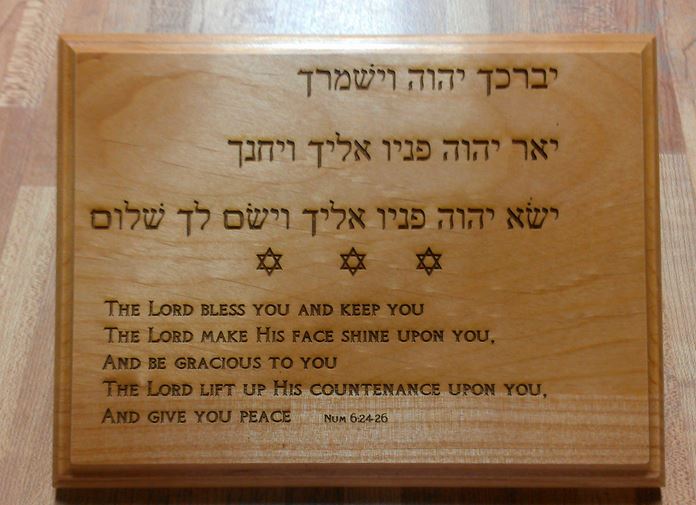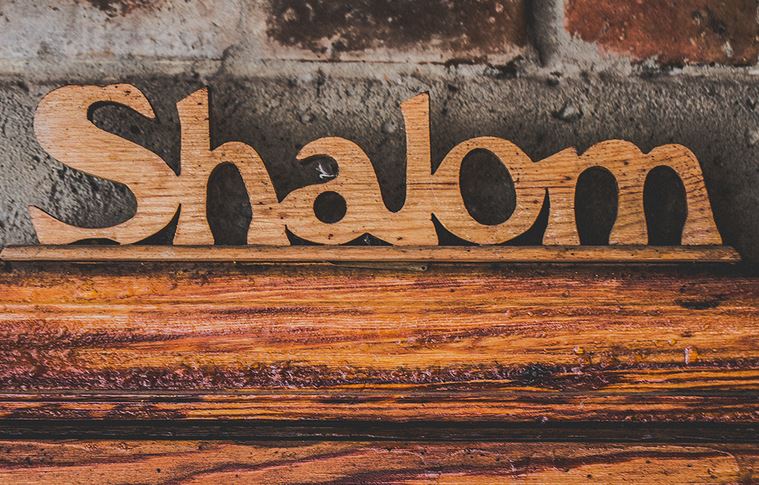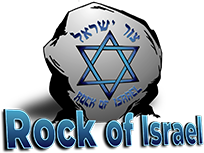Do you want to know the oldest physical copy of any portion of the Bible is? Even older than the Dead Sea Scrolls? It is what we call the ‘’Aaronic Benediction’’ found in the book of Numbers chapter 6.

(above art by Gitit Ezagouri www.gitita.com)
During excavations in Jerusalem (1979) – archeologist Gabriel Barkay found two amulets dating from about 600 years before Jesus. They were found in burial caves just across from Mt. Zion in Jerusalem. When scientists eventually unrolled the tiny silver sheet, it contained these words:

May Yahweh bless you and keep you;
May Yahweh cause his face to
Shine upon you and grant you
Peace
These are the words of the blessing that God told Moses to give to Aaron and his sons. As the High Priest, they were instructed to pray a prayer, the only such prayer in the entire Hebrew Bible, in which God instructed him to pray these exact words over His people.
Today, centuries later, these exact words are still pronounced in the Jewish service daily in the land of Israel by the descendants of Aaron. They are called the Kohanim (Hebrew for Priests.) This blessing said daily is, in fact, the only remaining functional link between the present day synagogue and the ancient temple in Jerusalem.

It is like God was telling the priesthood to say these words to His people as a reminder of His presence with them.
The LORD bless you and keep you,
Y’varech’cha Adonai v’yeesh’m’reicha.
The word for bless in Hebrew is barakh, which literally means to kneel down. It is related to berek, which is knee in Hebrew. Think of this picture – the God of the Universe bending His knee (figuratively speaking) to touch His children with love. Incidentally – isn’t this exactly what Yeshua did at the Passover dinner when He bent His knee to wash the disciples feet as an act of love.
This first sentence also includes the idea of God watching over, protecting, and keeping His children safe from harm. The root Hebrew word for “keep” is shamar, which literally means to hedge about. We are hedged in by God, protected. Read Psalm 91 to see how God hedges us in.

The LORD make his face shine on you and be gracious to you.
This line of the blessing has to do with experiencing God’s favor. Did you ever see a video of a loved one thought to be away (like in the military) – and all of a sudden they show up at the door or at the airport. Do you see how the families face ‘lights up’ when they see this person so close. God desires us to know that His face can figuratively ‘light up’ towards us when He sees us in proper relationship to Him.

The LORD turn his face toward you and give you peace. This final line of the Aaronic Blessing continues the theme of the ‘’face’’ of God and has the idea of His people receiving His full attention. It is like a father who puts down the newspaper and turns his face to give the child his full attention when the child has an important thing to discuss. And the result is the child feels peace (shalom) knowing that their father is there for them.
We may not have all the answers, but we can have peace knowing that God has turned His face towards us to listen to our cry and He will ‘take it from here’ like a father would for his child.
At first, the Kohen Gadol (Ko-HEN Gah-DOLE), or High Priest, was the only one who could pronounce the Priestly Blessing over God’s people. Tradition says he was required to do it barefoot (based on Ex. 3:5), fasting, and holding his cleansed hands in a specific gesture (based on Lev. 9:22). Now his descendants pronounce it daily in Israel.

While pronouncing the blessing, the priest would spread his fingers apart, placing his thumbs together to represent the Hebrew letter shin. Shin stands for El Shaddai, God Almighty. According to Jewish tradition, the divine presence would shine through the fingers of the High Priest as he blessed the people.
It is no wonder that these powerful words were worn around the neck of an ancient Israelite.






